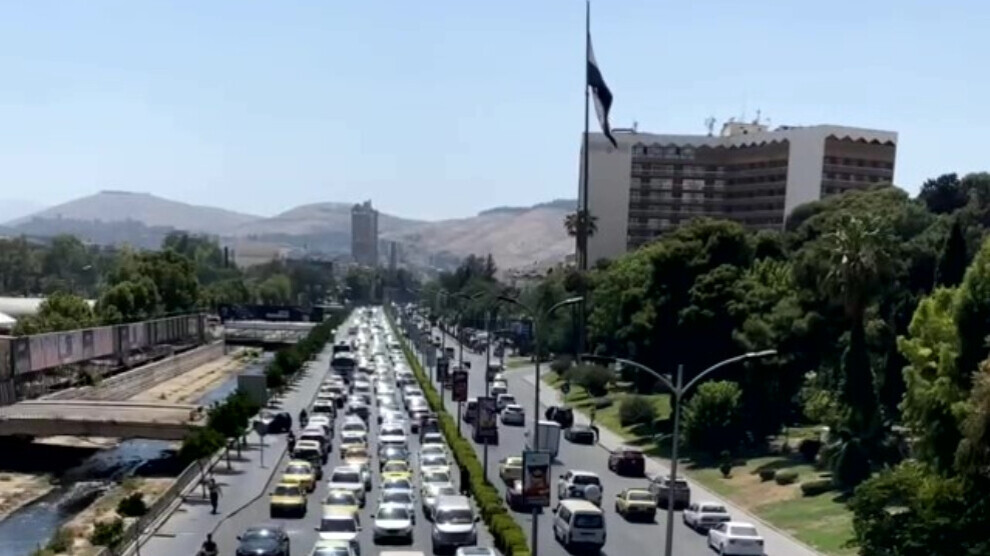Women in Damascus think public transportation unsafe
Women in Syria complain about social silence and lack of enforcement for laws against harassment especially in public transport since Hayat Tahrir al-Sham (HTS) took power in the country.

RAMA XALAF
Damascus- In Syria, people, especially women and children have been subjected to rights violations and massacres since Hayat Tahrir al-Sham (HTS) took power in the country. The situation of women in the country has been deteriorating; women living in Damascus are subjected to harassment, rape and threats every day by the members of the jihadist HTS. Women in the city feel unsafe when using public transport.
‘A familiar space for harassment’
“Public transport is no longer a safe means of transportation for women,” said Beyan Munir, a university student in Damascus, who has to use public transport every day. “Public transport has become a familiar space for harassment. As women, we face uncomfortable stares, verbal and even physical harassment. The worst thing is that people think that this is normal.”
Beyan Munir thinks the most annoying thing is that women are blamed for being subjected to harassment. “Women’s behaviors are being questioned, not the harassers’. When a woman is subjected to harassment, people criticize her for what she wears or how she behaves. Especially during rush hour, when public transports are filled , there are no rules of respect, women's private space is not respected.”
A recurring nightmare
“Public transportation has become a recurring nightmare for us, young women,” said Haya Ali. “We are constantly subjected to stares, verbal and physical harassment of men. Whenever I get on a public transport, I start asking myself who will sit next to me, whether I can escape if something happens or how I should act. Women have to be careful to protect themselves. You have a persistent fear, an anxiety that lingers in your mind whenever you use public transport.”
‘A form of social violence’
Sara Abud thinks that harassment in public transportation is a form of social violence against women. “I have not experienced such an incident but I always stay away from crowded spaces in order not to be subjected to such an incident. I prefer taking taxis or minibuses because they are safer.”
The sister of Sara Abud used public transport when she was a university student. “My sister had to use public transport every day to go to university. After a while, we noticed significant changes in her behavior. She isolated herself, did not talk to anyone. One day, she told me that she was always subjected to harassment whenever she used public transport.”
Sara Abud called on the authorities to form effective mechanisms against harassment on public transport and enact a law to protect women from harassment. Respect is not a luxury; it is a fundamental requirement for society. Women must be respected in all facets of life.”
The stories of these three women reveal a reality that thousands of women live in silence every day. Ensuring safe public transport for women is essential, not a demand.
